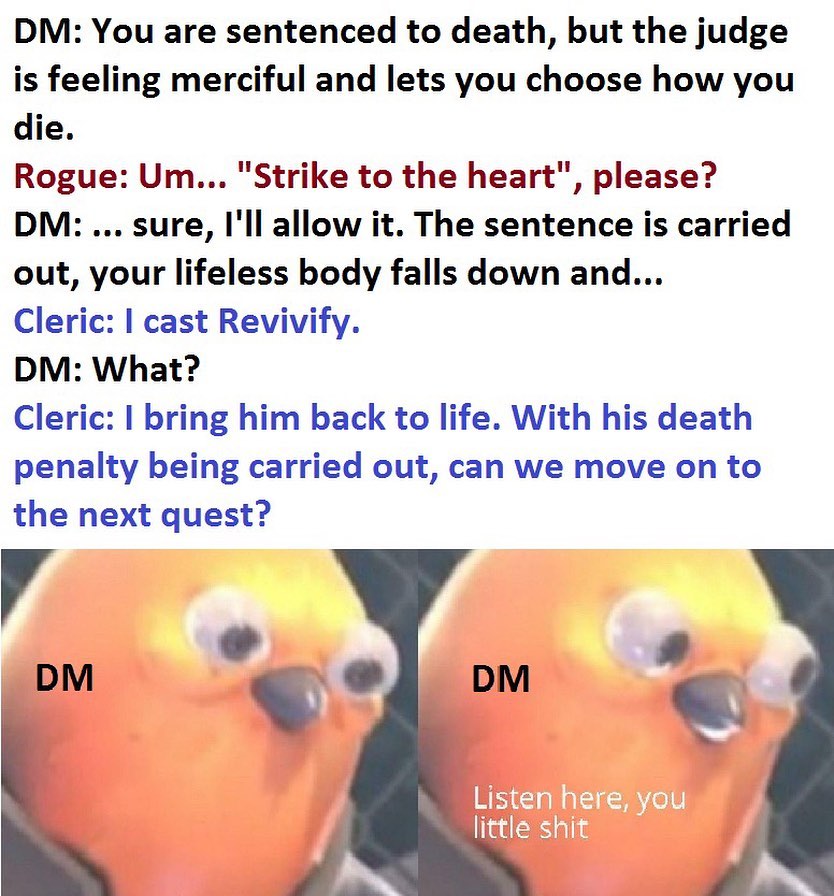this post was submitted on 25 Nov 2023
767 points (97.4% liked)
RPGMemes
10308 readers
442 users here now
Humor, jokes, memes about TTRPGs
founded 1 year ago
MODERATORS
you are viewing a single comment's thread
view the rest of the comments
view the rest of the comments

Here are five passages from Fire in the Blood, the 4th book of the Brimstone Angels series by Erin M Evans, which I mentioned in my earlier reply to @MouseKeyboard@ttrpg.network. The quotes contain minor spoilers for the end of the eponymous book 1 of the series, and major spoilers for the content earlier in book 4. I would highly recommend both the series in general and this book in particular. This book and the two that follow if your interest is in political manoeuvring (this book on the politics of Cormyr, books 5 and 6 on the somewhat more exotic politics of the dragonborn kingdom of Tymanther). The series as a whole if you have any interest in the politics of the Nine Hells, or the interaction between a warlock and her devil patron, or what it's like to be a tiefling in the Forgotten Realms—a race that, by the Player's Handbook's own admission (at least prior to WotC's culling of so much excellent content a year or two ago) isn't innately evil in any way, but frequently gets treated as though it is.
The quotes don't go into cloning at all, but I don't think that a clone would be considered the same "person" as the existing monarch, and so a clone would probably take its own separate place in the line of succession. Probably not very high, given the existing laws' precedent of attempting to make the succession as straightforward and clear as possible, and minimising the ability of anyone to use magic to mess with that.
The closest thing I found to an explanation in there is this:
But it doesn't say what those crises are, or why a king would be so desperate to avoid them that they'd outlaw someone reviving them or ensure that their power is taken away if it does happen.
Ed Greenwood is pretty active on social media. I wonder if this might be something he'd answer if someone asked.